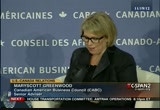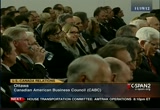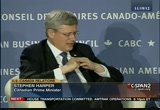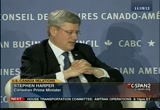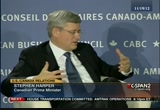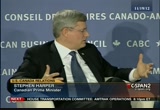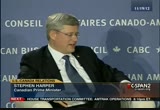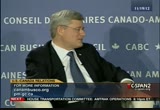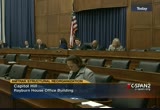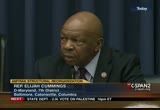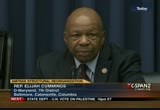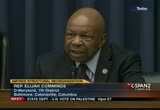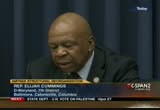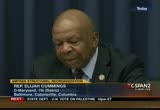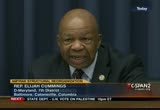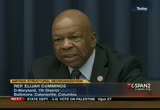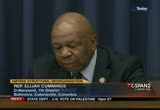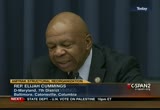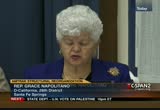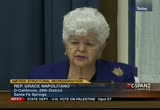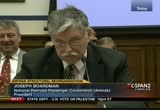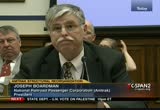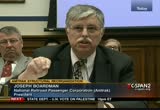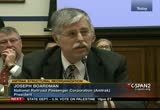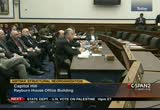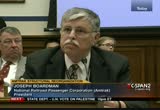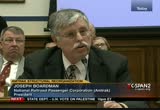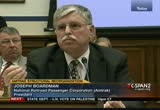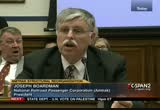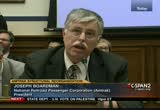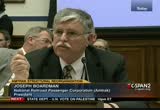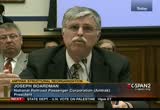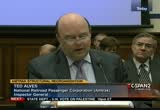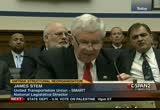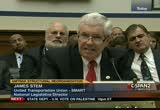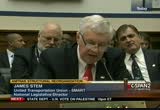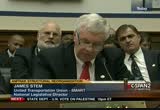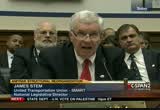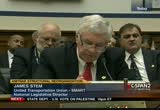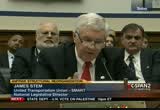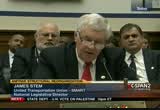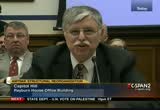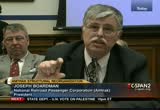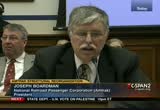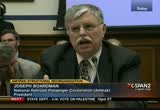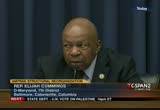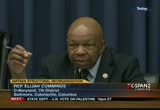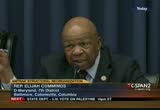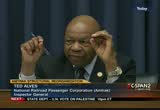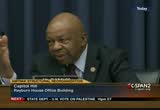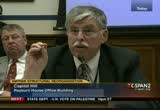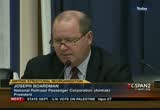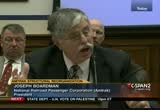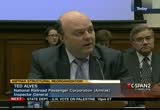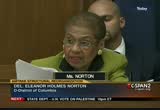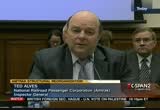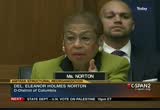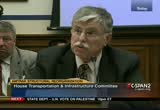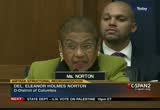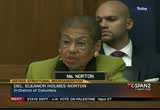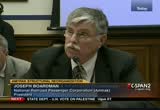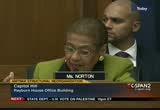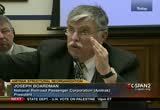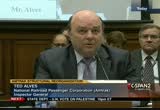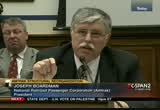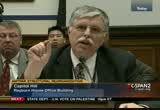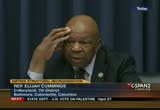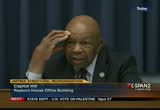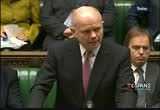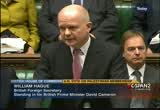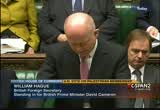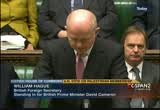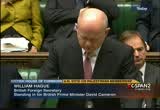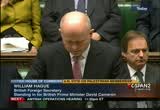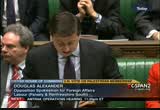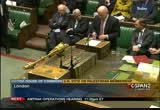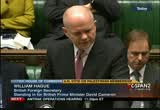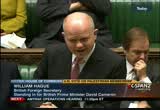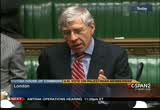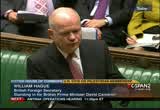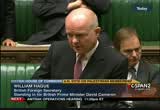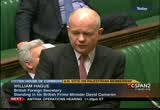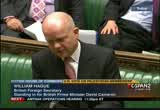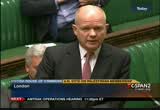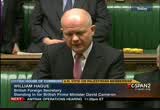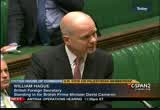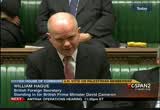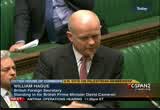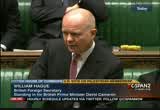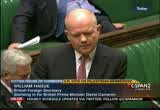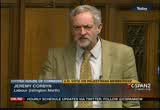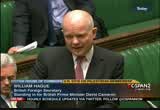tv Tonight From Washington CSPAN November 28, 2012 8:00pm-11:00pm EST
8:00 pm
american popular culture. and what to ask a serious question about canadian identity -- iw ant to ask you a serious question about canadian identity andhave you seen 'argo" what you think of it? rex on the second one, it is a great move me -- movie. >> i believe it will do more for canadian american relations. >> he wanted to work himself into the plot. i told him it cannot be done. [laughter] >> what was the oteher thing? >> canadian sense of self.
8:01 pm
give taken a particular interest. you go there lots -- a what draws you up there? >> a couple of things. canada as in northern nation. that is what, one of the things that makes us distinct from the united states. whereas in canada, the united states, you say go west to find your identity. in this country, it has always been go north. that is the part of the country that defines our identity and has so much promise in terms of its abundant resources. i do want to say this -- one of the things we tried to do as a
8:02 pm
government, with some success, is we come to office with two views but too often in the past, we're seeing. one is that this government is extremely pro-american. the valiant the relationship with the united states. we could not be in a better situation than to have the united states as our only real labor, closest economic partner and oldham of the allied. -- and ally. at the same time, we're strong canadian nationalists and think in our own modest way.we see no incompatibility with that. but we attrited did -- what we
8:03 pm
tried to do is say there is no need for canadianism to have anti-americanism. because of what does happen in the global economy. let's marry those two things. recognize the states powerful country that should not be a basis of resentment. it should be a basis of our pride and the importance of the relationship we share. we have tried to project that you to canadians and i think canadians are embracing that.
8:04 pm
they can celebrate the anniversary of the war of 1812. celebrating our history and at the same time recognizing the great reyes -- relationship that has come out of that part of history. that is what we're trying to do in this country. i think canadians are embracing back. my only complaint -- we always like to have more attention in the united states. we pay a lot of attention to you. he sometimes did not pay enough attention to us. the squeaky wheel gets the grease. we are not a squeaky wheel. we recognize the united states has obligations and responsibilities that are
8:05 pm
global. to the extent -- we can do what we can be helpful in that role. >> we will and on one thing. we talked about american pop culture. there is a picture of you from a trip to the uk. you walked into a beatle song off abbey road. i wonder if we can tell the picture and you can explain what surprise you got on your 50th birthday. do we have the pictures? there we go. >> the story was we were there. that was the second g-20 after the one in washington. gordon brown helped -- tell the next g-20 in april that the
8:06 pm
london -- hled the next 6-20 in spril in london. we went out to abbey road. the wife said we should go knock on the door and see if we can get a toure. that is what they did. we knocked on doors. they give is a great toure -- gave us a great tour, including studio 2 where the beatles recorded all their stuff. they bought out all these pianos and keyboards. i fooled around on after
8:07 pm
probably 20 minutes. my disappointment was when i left, the presented me with a cd that was recording what i was doing. if i had known that, i wouldn't try to actually play something and do it well but i was just fooling around. >> >> he worked his way up and went to harvard law school and then one of his brothers emigrated out west to illinois to galena,
8:08 pm
where the mining industry was at its heyday. he arrived after a month's journey by ship, by stagecoach, by train and arrived in steamboat in this muddy mining town, order themselves in a log cabin, established a law practice in a log cabin and slowly worked his way up to become a very successful lawyer incorporated a lina and then got involved politically, ran for congress and served for eight terms. and then he friended abraham lincoln, obviously from illinois, and then ulysses s. grant also from galena and as they were on the rise, washburn stayed with them as a very close confident and colleague during the civil war and then after grant was elected president, he initially appointed washburn secretary of state.
8:09 pm
at that time washburn became very ill and his family feared for his life. after about 10 days he submitted his resignation to president grant, and so grant regretfully accepted his resignation. so then over the next several months he regained his health, which is always very fragile. he regained his health and so grant then offered him a position as minister to france, ambassador to france. >> and tracks inspector general told the house transportation committee that by improving its importing process and track has this year recovered more than $20 million in overpayments.
8:10 pm
[inaudible conversations] >> good morning and i would like to call this hearing of the house transportation committee ambrister x. or committee to order. we are pleased to conduct this full committee oversight hearing on amtrak and the title of today's hearing is getting back on track, a review of amtrak's structural reorganization. so, welcome and we have one panel of witnesses today. the order of business will be that i will start with an opening statement, provide some background and we will yield to mr. cummings this morning and other members who wish to be
8:11 pm
heard and then we will turn to our witnesses and hear from all of them and then go to questions. pleased to welcome everyone this morning. now, this is one of a number. we have actually helped for in a series of four oversight hearings on amrak and u.s. passenger rail policy and the united states. we actually have two more scheduled. one will be on thursday, december 3 and that will focus on high-speed and intercity passenger rail grant program and then we have the final hearing on this important subject thursday the 13th of december. that will be on the northeast corridor. ironically yesterday i was back in new york city actually looking at some of the flood and storm damage.
8:12 pm
many of the transportation infrastructure facilities were adversely impacted, a huge amount of damage. they have incredible -- new york city how resilient as people are and how well they are coming back. i think they have about 95% of their transit operations, and the rail was particularly hit amongst all of these east side in lower manhattan, tunnels flooded and just think of the massive effort put forward to get those trains running. they probably move about 20% of all the passengers in the world in new york city and a hit like that was incredible. i understand mayor bloomberg who was here yesterday will be in town today and we had discussions yesterday about fema, which our committee oversees and also the transportation infrastructure
8:13 pm
and maybe the focus of an additional committee. today we are focused, looking particularly at amrak's structural organization and i might also recall that in the last hearing we will be doing on the northeast corridor, our very first hearing was on january 27 of 2011 when i became chair of the full committee and we did that and grand central terminal where we focused on the future of high-speed rail in the northeast corridor and our last hearing on december 13 will focus on that same issue and the progress we have made since that hearing. it's kind of interesting how you come about choosing topics for some of these hearings. i have to reflect a moment. a lot of people when they go
8:14 pm
home, maybe they go to bed and they count sheep or read a novel. i like to take copies of different trade publications at my bedside and i was reading -- it had to be author on this because it was august 2012. progressive railroad had a great article which featured, well the title is at long last, a longer view and it focuses primarily on passenger rail service and amrak. i thought it was quite interesting particularly interesting because it outlines some of the work that amrak has been doing regarding its reorganization and structural management and responding to some of the previous studies that called for more accountability, more
8:15 pm
responsibility and the way amrak is structured, that led me to say we really need -- the committee really needed to look at where we are in this whole process and where we have been. for just a minute, to tell you where we have been, we have had a gao study in 2005 that asked for amrak to develop a strategic plan that could clearly link the management to overall corporate goals. amrak is a corporate -- i was intrigued by a comment that bill boardman is the president ceo made and in this article when he pledged in the article, and i take his quote from the article, to run this company more as a business and less as a government entity.
8:16 pm
quite an aspiring goal in something we have been trying to achieve from this committee, so he sets some of the bar and again back to 2005 reviews of amrak had called for improvement again in its organization and management strategies. in 2010, the ig of amtrak released another report and as a result of that 2010 report, in november of 2011, so they'd amrak release their five-year strategic plan with corporate goals and new organization structures, you know, targets that they intend to use to create more transparency and accountability and that is what we will focus a great deal on today, is where they are in that process, how they have come along and we will hear from the
8:17 pm
head of amtrak, mr. boardman and the inspector general and also a representative workers and labor and see how they assess that progress. the plan -- the strategic plan that is now underway hopefully we will hear to be fully implemented by next year. we will get an exact update again from mr. boardman and others. they plan that was devised takes amrak and organizes it into six business lines, a vice president, a manager of business and we will see how that has come to pass and how that organization's -- reorganization is proceeding and the purpose of that is to establish performance goals that are outlined in the strategic
8:18 pm
plan so that profits and losses can be addressed and also accounted for. in the past amrak managers have not unfortunately been accountable for what has happened in their departments. that is not my evaluation. that's the evaluation of several of these studies. also in the past, there have been amrak attempted reorganizations without clear goals, and fortunately. i hope to better understand amrak's strategic plans, corporate goals and reorganization, specific progress on its reorganization and also learn how it will improve performance accountability and cost savings. i approached this hearing with a very open mind. subsign strategic plan is very important. i know it requires a transformative approach from what they have done in the past.
8:19 pm
it's not just rearranging the chairs on the deck of the titanic. we want to make certain that there is positive progress. from a fiscal standpoint, and everybody is focused on the fiscal cliff and sometimes people give me a hard time for focusing on amrak, but we have this past year but $1.4 billion amtrak and government subsidies, almost half of that in operating subsidies, close to $1 billion on some of the capitol improvements and over the years, that commitment has remained pretty much the same. so we do have the responsibility for taxpayer dollars to make certain that this operation, which is highly subsidized, and we did do a hearing on that. i guess one of the past three or four hearings we did is a cross
8:20 pm
mobile comparison of federal studies. rode amtrak yesterday and the average cost of my ticket coming back from new york, government subsidized the average cost of $46.33. unfortunately, and i read through the report pretty carefully, amrak has made some progress and this the average ticket subsidy simply by taking the 29 million passengers or 28 last year and dividing it by the underwriting subsidy. others city buses, massachusetts transit and aviation, $4.28. it was highlighted in a previous hearing that we did. they are trying to bring this subsidization down. let the say in closing, i went through the inspector general's
8:21 pm
report last night and i do want to hear at least the report that he is giving and i'm not sure how much of this he will address but seven of the nine board members and we had some reorganization of the board of directors, but we now have seven of the nine board members on board. i also want to know about key personnel. we talked about hiring vice presidents and managers over some of these and that is mentioned in the inspector general's report. and finally, the comment that the inspector general made, the company is clearly in the early stages of implementing many of these restructuring initiatives. he further said that recent work shows the sustaining and effectively implementing these initiatives has the potential to
8:22 pm
significantly reduce amrak's reliance on federal support. and that is the goal of this. it's not just to beat up amrak although sometimes we do become very harsh critics when money is lost or we see lack of progress in some areas. our goal is to reduce the federal reliance on federal support and that is one of the objectives of this hearing in addition to finding the specifics on the progress of their structural organization and their reorganization. i will introduce our witnesses shortly but let me yield to mr. cummings who is serving as ranking member. >> thank you very much mr. chairman and it is certainly a pleasure to be here and i want to thank you for calling this hearing. mr. chairman, quite often our
8:23 pm
federal employees are seen, unnoticed, unappreciated and unapplauded. in my capacity as the ranking member of the oversight and government reform committee, i hear so much criticism of our government employees and government employees in general and i want to take a moment here before i even start to think joyce groves for her 25 years of public service on behalf of both this committee and on behalf of the side of that i. i know all of us feel this way. [applause] this is joyce's more than like me, it is her last hearing. and, she has always worked fairly with all of our members
8:24 pm
and with our staff on the side. she has done everything in her power to make sure that not only that the congress is served well, but that the country is served well. and so, we hate to lose her, but we know, as someone said to me, i heard this in his sermon by t.d. jakes not long ago. he said his son is a singer and he was about to go off to college. his son said daddy, i'm not sure this is the thing for me. singers may not make a lot of money and it may not be the right thing for me. and his father went up to him and he said son, if it's not the thing, it's the thing that will lead you to the thing. and so, this has been --
8:25 pm
this transportation committee has been a part of your journey and we hope that it has been one that has been most -- and we really thank god for allowing your destiny to lead you to us and for our destiny to lead us to you. and so we wish you well in your new endeavors as the president and he went from staff to president, of operations which has the important mission of educating the public on railway crossing safety. may god loves you and thank you so much for your service. [applause] >> it's the gentleman will yield for just a second? >> of course.
8:26 pm
>> probably no higher tribute to have been the other side of the aisle lead with a praise for service that the committee, to the congress and to the country. mr. cummings and i know that you cannot be successful in our position without great staff and certainly you have worked long and hard, 12 years for the committee in 25 years in congress and a quarter of a century to commit to public service. i don't think there is anyone that deals with the rail or transit issues that doesn't know of joyce rosen her commitment to helping everyone. we hadn't passed a passenger rail reauthorization in 11 years joyce worked with myself and mr. oberstar and we had great cooperation from the other side of the aisle to pass the legislation called passenger
8:27 pm
rail investment authorization or passenger rail. right now the guideline we go by and the authorization but if it was not for her dedication and commitment and incredible knowledge. just think of the knowledge that will be lost when she leaves her position. we could not have achieved that, so joyce on the half of the majority side which we have had the privilege to have you working with us and again from the minority side, we are eternally grateful and paying a little special tribute today and thinking you for your service. god bless you. [applause] mr. cummings, thank you for yielding. >> mr. chairman i thank you for scheduling today's hearing. following the lease in 2005 by
8:28 pm
the gao of what is entitled amtrak management systemic problems require improved efficiency effectiveness and accountability. that was the name of the report. i was asked by then ranking member oberstar to serve as the lead democrat on the special working group convened by this committee to evaluate the board's findings and make recommendations for subsequent action. certainly amtrak was facing challenges at that time but among other observations the democratic numbers of the working group noted in our view that amtrak face difficulties in implementing long range strategic plans because of rate uncertainty regarding federal funding each year-end of quote. during that era amtrak faced proposals to cut or eliminate federal funding provided to it. obviously that made it difficult
8:29 pm
for amtrak's leadership to focus solely on operating and upkeep and developing long-term goals and performance benchmarks. we hear a lot in congress about uncertainty so subsequently under chairman oberstar's leadership congress enacted the passenger rail improvement act and recommitted the value of the service it provides. this commitment was expanded by president obama, the congress for the american recovery and reinvestment act which provided funding to begin many of the capitol projects it had been able, to two years of inadequate federal funding, and it is clear that the investments made in amtrak are supported by the traveling public. fiscal year 2012 amtrak achieve the highest ridership levels in
8:30 pm
history. that is major news, major. more than 31 million passengers took amtrak this fiscal year and the service appears poised to continue to grow. against this record, my colleagues on the other side of the aisle believe amtrak needs to get back on track as the title of this hearing suggests, only because they have once again in doing all they can do to try to get rail to service. in fact republican presidential platform called explicitly for amtrak's elimination. fortunately, that misguided platform was resoundingly rejected by the american people who have instead supported the president's goal to move forward by implementing policies that would expand investments in our nation and support our community economic recovery.
8:31 pm
so this company can stay on track and focus on its core mission in serving our nation's mobility needs as safely, securely and efficiently as possible. i am very encouraged by the actions of mr. boardman has taken to develop a strategic plan and to introduce an organizational structure that supports the implementation of that plan and increases accountability at all levels of the organization. i might note that when the chairman was talking about subsidies with mr. boardman, i don't think it included amtrak's commuter rail passengers. the actual subsidies is about $5 per passenger and i would ask in your opening statement you address that so we will be clear on what that subsidy is. we don't want any confusion about that because i don't want people watching you and thinking it's something it's not.
8:32 pm
that said, while we must he must conduct thorough oversight over amtrak as the overall entity receiving federal funding, our committee has now held seven hearings on on the floor subcommittee levels in the 112th congress with amtrak. today we are continuing to examine a strategic plan that has not even been fully implemented. appropriate oversight does not require micromanagement. from all facets of an entity's operation. thus, while i look over to the testimony of today's witnesses i hope we will use this hearing to identify ways we can support the continued success of amtrak, enable it to grow and meet passenger demands. we should also seek ways for continued implementation of reforms mr. boardman has proposed and give him and his leadership team for they need to
8:33 pm
fully implement their plans rather than requiring them to return to the hill every few weeks. so what that mr. chairman i yield back. >> i think the gentleman. are there others? anyone on this site? i'm sorry, ms. richardson. >> first of all i would like to thank chairman mike then ranking members brown and cummings for holding this hearing today which focuses on amtrak's structural reorganization. it is noted that amtrak has a record of 30.2 million passengers traveling on amtrak and 2011 and with that more than 300 daily trains that connect 46 states including the district of columbia and canada and additionally operates intercity trains from partnerships, 15 states and contracts with 13 commuter rail agencies to provide a very -- variety of
8:34 pm
services. at times his committee has been critical on the way amtrak operates trains across this great country but if amtrak were truly as bad as some of the hearings have suggested we would have seen headlines like, amtrak has record low ridership. in fact that is completely the opposite. instead, amtrak's ridership is booming this year. in each month of this current fiscal year amtrak has posted the highest ridership total ever for that particular month with the final month in september also expected to be a new record. in addition in july, with the single best ridership month in history of amtrak. unfortunately the reason -- recently passed transportation bill real title was noticeably absent in the final form despite many of our efforts here on this committee. this suggests before this committee does that no federal
8:35 pm
funds to amtrak would be allowed to pursue any legal action in court, 25% cut in funding and an even more alarming, not having a vision for high-speed rail networks. these possible legislative actions are detrimental to the transportation opportunities for all americans. the alternative to build more roads buy more cars and consume more oil should not be our only solution. in fact according to d.o.t. in comparison, in 1958 to 2012, the united states has invested $1.4 trillion in our nation's highways, $538 billion in aviation, $266 billion in transit and yet the amtrak which was created in 1971, has received a small fraction of that funding at $41 billion. when you consider that an compared to the oil and gas industry which has received roughly $41 billion in federal subsidies with more than half of
8:36 pm
those subsidies available to the energy sector, we have -- to bring that together we spend more and when you're with the oil and gas and energy companies and their industries than we have spent an entire in the entire life of the program of amtrak. clearly there seems to be an imbalance and it's not one that should be continued. regarding the position of high-speed rail, one of those alternatives and now it may only achieves speeds achieve speeds of 83 miles per hour. surely that is significantly better than the long delays of sprawling major interstate systems that we have. this committee should continue the the to the role is a very sad to facilitate critical of the structure and the continuation of one of america's greatest assets and that is passenger rail. i want to thank all the witnesses before the committee today and i look forward to hearing your testimony about how the reorganization of amtrak can
8:37 pm
make it an even greater service to the american public and with that i yield back. >> i think the gentlelady. >> the thank you mr. chairman and i -- and thank congresswoman ranking member brown and elijah cummings for bringing this issue along with you. amtrak is extremely important to california. we have three of the top five busiest corridors in our california area. two of them are supported totally by the state. i see that there are some cuts coming through and i'm going to be looking at that very closely because it has a 2.8 million ridership. our state support services program as has been stated, vitality must be supported for the state-supported services program. incentivizing the states to work
8:38 pm
with passenger rail service to complement the national network. is important to all states, especially california, we are a donor states because gives more options to commuters and many intercity travelers while reducing pollution. california's been at the forefront of reduction of pollution and cars and several other areas and we continue to look for ways to be able to get people out of cars and into public transportation. the transportation commission are voicing their opinions -- talk to the transportation secretary brian kelly and rail to finish billbrad beyond keon how they view amtrak's work with california and caltrans. they are concerned with section 209 of the passenger rail and investment and improvement act.
8:39 pm
that forces the state of california to pay $20 million taken out of that budget for them operating losses on that liner. it goes along the border of my area which is the train transportation that brings in 40 to 50% of the nation's goods. we are watching the rear cassation of amtrak and making sure it doesn't enter any state partnerships. these are critical because they're the ones who will in the end, who work with the local communities to ensure that we get more people to utilize it. we are pleased that the reorganization has -- and i look forward to meeting that individual and working with them. the states provide 50% of the revenues to amtrak. we must have a senior amtrak level position to work with their programs and it's
8:40 pm
especially important in section 209 of priya, especially in california. i also want to add my 2 cents to ranking member elijah cummings statement on running amtrak. they have done a beautiful job and i hope they will continue and we continue to work with them to ensure that not only do they provide good service but that they also are recognized for the work they do for our ridership. with that i yield back the balance of my time and i thank the chair. >> i think the gentlelady. ms. johnson. >> thank you very much. mr. chairman and ranking member, my remarks are very brief. in october 2005, they issued a report to then chairman young concerning amtrak's lack of a strategic plan and the report identified that without a comprehensive -- amtrak's
8:41 pm
business practices were lacking and could not ensure consistent and improved corporate deployment. in august 2010, the amtrak inspector general's office released an evaluation report of amtrak's strategic planning and said the key elements necessary brought effective strategic process. the igs report formed the basis for amtrak's november 2011 strategic plan for fiscal year 2011 and 2015. while the reorganization is not yet fully complete, there appears to be significant performance and accountability improvements and i look forward to the testimony. it seems to me that they are doing exactly as we have desired. thank you an ideal back. >> i think the gentlelady.
8:42 pm
do others seek recognition? if not what we will do now is turn to our three witnesses and we welcome them again. our first witness and i will recognize him at this time is the president and ceo of amtrak and mr. joe boardman. thank you and welcome in you are recognized. >> thank you mr. chairman, mr. cummings, members. i appreciate being here today and choice i will be on your boards of the questions will come from me for the future for ol i bet i am glad that you are there and you still bring energy to a very important problem of safety for road roads and i appreciate the work you have done here. angela cody who is sitting in the corner, mr. chairman who is the run that wrote that land i have already blamed her this morning. she has already asked me for another interview and i understand now no good deed goes
8:43 pm
unpunished in this process. what i would like to really start with and talk about this morning is that i have been a amtrak customer as a state commissioner of transportation and even before that i was thinking about this in my own company, i used to amtrak as the backbone of what we provided in transportation to the social service agencies where we had contracts. part of the high costs for social servicing was to transport especially the long-distance. for example in new york from the central part of the state to buffalo to the cancer center. instead of using an ambulance or a very high cost, we would transfer people to amtrak at utica, syracuse to get to the buffalo center. so amtrak was right to begin with, the answer, part of the
8:44 pm
reduction in cost savings that the federal government is interested in and the state governments are interested in across the country and also contributes them to amtrak's revenue as a result of that. so as a customer, i am focused on customers and what is it that a customer really needs to ride amtrak or any other service in the future? so when you look at a transformation of a major corporation which amtrak is, you really have to spend a lot more time in the diagnosis than you did in the execution. so what you saw for the first year or two was looking at amtrak as an organization first. how do they do their job and could it be done differently for the future and what it found was that a lot of the past three
8:45 pm
organizations, a lot of box moving of the organization but not a lot of understanding of what the women and men at amtrak really complex to and deliver the services that we were really looking for. -somethings were good and some were not. but now we have some results of what we are doing and we have made some of these changes on an incremental basis as we have gone along. for example we knew that a foundation the foundation of this had to be, why doesn't amtrak heavenly labor contract agreements for over eight years and why did we have that kind of a culture at amtrak? mice perspective was you need to bring that group of people together in a very different way for the future so the reorganization began almost immediately in terms of understanding the strength of this agency was in its men and women, the work that they did and how they worked with us or with management or not with management.
8:46 pm
we needed a way to get in there and the common thread of what a customer wants and what an employer wants and what an employee wants is safety. we went in under the basis of a safer program which was a different way of looking at safety than the railroad industry had looked at generally in the past. the way i learned about that was from federal employees. those federal employees were part of the federal railroad administration and they saw that the level of safety got to a certain place and didn't go any lower. it had to change the way we were looking at safety. there has been that recognition's just in the past year by the freight industry as well. it's a different structure today of fair rewards for safety because what we really need is a behavioral-based safety program, which is what amtrak now has.
8:47 pm
it's safer but it also brought people together to work in collaboration to resolve problems. you could not resolve problems and amtrak without that kind of collaboration with the women and men that did that work. amtrak's ninth ridership record in the last 10 years, we have actually reduced our operating subsidies. there is a difference in our view of operating subsidy and capital subsidy because amtrak in its first iteration in 1971 was taking over the losing passenger railroad system from the private freight industry, and it did not include the northeast corridor. it only included the long-distance trains across this nation and congress contemplated, as did the executive site at that time, that subsidies would be needed, although they expected that there would be some way that a profit would be made. the freight railroads were
8:48 pm
relieved of the great responsibility but it wasn't until 1976 that you really got the northeast corridor and you had a different structure at that point in time. and mr. cummings, to address what you asked early on, when you really look at operating the system, we cover 79% in the company as a whole. but on the northeast corridor, we cover more than 100% of our operating costs and we use part of that revenue to go back to subsidize the long-distance trains because we know that the long-distance trains are an intricate part of our network of mobility across this country. so in fact, there is not a subsidy to a passenger on the amtrak corridor except when you add capital systems. and i understand that. the need for capital assistance
8:49 pm
is so great on the northeast corridor that that subsidy need will continue for a long time. recently exposed in the storm, sandy, where we lost one of our substations because we didn't make the investment. we as a nation, as a region didn't make the investment to make sure that the water did not come into that substation and in the ability for us to have a level of service into penn station in new york city, because those gates were so old. it was scheduled to get done as a part of the program and it is now scheduled to be done as part of the gateway program which is a discussion that this body needs to have for the future about how do we make those investments in infrastructure? i am hearing that today in many areas. so, really a subsidize cost is really about the long-distance
8:50 pm
trains where the business model doesn't work the same as the level of service along the northeast corridor and the need to connect that service. but we have to be careful coming into reorganizing amtrak. we had to find out whether it was the gao report or whether it was the ig report. we followed the ig structure in terms of developing a strategic plan. there's no question about that and i think that mr. alves will state that in this process and when we did that we knew other elements in this had to occur as the gao pointed out in its metrics. one of the things that i feel that i brought to this process was, this was most of my career going into failing bus systems and bringing them back and delivering a different structure
8:51 pm
across the country for passenger transportation. well rail is a little bit different, it's still very similar in many ways. it's not about the boxes. is about understanding what it is that we have to get done and then making sure that we are able to measure, half goals, but they are clear and we can measure them to see if they are successful. broadly, we see that in ridership. broadly, we see that in reducing federal funds but our goals need to be much more specific so that we can hold ourselves accountable and our employees accountable for what needs to be done to improve services to the customer. because the customer is the major focus of what this company needs to be all about. it's not about moving trains. it's about moving people and that is at the foundation. the people that you move has to
8:52 pm
be people that feel that they are fairly dealt with within the company. so the foundation of our reaccreditation is a commitment to the value, the integrity in the spirit of service, the desire to improve entrepreneurial spirit, humility, knowing that is why we have heroic acts. we don't have heroes. we need everybody, women and men, to deliver what we are really looking for. it isn't about the ceo and it isn't about the union leader. it's about all in a collective fashion. and then we finally need, perhaps sometimes first of all, forgiveness and the process. because what you are looking for people making decisions, and they have to make them every single day, and sometimes they don't make the right ones.
8:53 pm
and they need to be forgiven when they have done it in the best way that they can and then learn from that for the future, and that is what we look for is that learning. i don't have a time clock here in front of me. >> we had given you double so far. >> so i can step back and answer questions for the future. we do have a strategic plan. we do have an organization and a process. it's different than it was in the past. is a major organization rather than a siloed organization and it is in complete. in some ways as i listen to folks, they say it's never going to be completely complete because things change. for example, not so sure right this minute that we will hire a general manager for commuter services because our commuter service has gone down and it's been the subject of a previous hearing. that may not be the best way to
8:54 pm
deliver that for the future. me -- we may rethink that and that is when we have not filled at the time. we have filled the general manager for long-distance and fill the general manager for the northeast and fill the general manager for state-supported services, and i will stop. >> thank you and we will get back to the questions. we have a wide range in what we are interested in hearing about the we but we will turn out to the inspector general, mr. alves. the inspector general of amtrak, it's good to have you here. >> thank you mr. chairman. good morning mr. mica, mr. cummings to members of the committee. thank you for the opportunity to discuss how i would support or compliment amtrak's ongoing efforts to operate more effectively by focusing on customers and the bottom line.
8:55 pm
focusing on amtrak's ongoing organization, my testimony will center on reports related to improving amtrak's operational and financial performance. before i address those reports, would like to highlight the fact that our work generally supports ongoing amtrak improvement initiatives. over the last couple of years the board of directors and amtrak managers have been focused on improving amtrak's operational, financial and customer service performance. to illustrate, because the board now has seven of the nine members authorized by priya it has been able to reconstitute two important committees, the audit and finance committee and the personnel committee. this is help the board to provide stronger oversight of management at diddy. similarly, amtrak management has taken key actions including issuing a strategic plan and best practice guidelines that
8:56 pm
provides a roadmap to help so they become more focused on customers and the bottom line. the reorganization initiative that is the focus of today's hearing is directly linked to the strategic plans commitment to organize around lines of business. turning to our reports, generally amtrak has taken positive action on the recommendations. for example, on august 2010 report found that although amtrak made various attempts to develop a strategic plan, none had been discussed. the need for amtrak to have a meaningful strategic plan was first identified in the 2005 gao report. we recommended that amtrak develop a strategic plan utilizing a process that incorporates best practices for strategic planning. amtrak agreed in the plan was issued in november of 2011.
8:57 pm
amtrak's board of directors also requested that we review the risk management processes. in march 2012 report shows that's amtrak did not have a systematic enterprise wide framework for identifying, analyzing and managing risk. the board chairman of the president and the ceo responded that once they understood the commitment required, they would provide guidance to management about amtrak's plans to implement a risk management framework. we discussed their views on the way forward with the board and understand that the board is in the process of determining how it will address this issue. starting in 2009, we issued a series of reports on human capital management. our july 2011 report found that only limited progress had been made in implementing our prior recommendations. in response mr. boardman agreed to make improved human capital management a priority.
8:58 pm
since then amtrak hired a new human capital officer and he has developed and is implementing an action plan to address our recommendations. we also issued two reports on amtrak's food and beverage program. september 2012, we reported that the food and beverage activities were being carried out by two departments and their activities were not well courtney did. management agreed to consolidate the to and did so on october 1, 2012. since 1995 we have issued a series of reports identifying more than $83 million in overpayments by inaccurate invoices from most railroads. amtrak agreed to improve its invoice review process and has done so. in addition this year, amtrak recovered over $20 million of overpayments we had previously identified.
8:59 pm
in conclusion the company is focused on operating more like a profit-making business. it's in their early stages of implementing many of these improvement initiatives and we believe sustaining these initiatives over the long-term and effectively implementing them will be the key to success. mr. chairman this concludes my testimony and i would be glad to answer any questions that you are other members of the committee may have. >> thank you and we will hold questions. we are now going to recognize mr. james stem and he represents the united transportation union workers and we are very pleased to have him back and so we look forward to his testimony. you are recognized mr. stem. >> thank you mr. chairman, ranking member cummings. we appreciate -- there are about 19,000 amtrak workers and i today am bringing
9:00 pm
you their message. it represents a 3300th career professional amtrak employees. i would also like to revise my remarks by adding the fact that i have had the personal opportunity to work in real passengers for railroads during the five years preceding the creation of amtrak. i witnessed first-hand the equipment, the services that were there, the attempt by the railroads to get out of the business because it was -- the liability was a major concern and it was a money losing prospect. ..
9:03 pm
it furthers the priority to meet with the demand for the significant increases in real services. amtrak operates crews are along the most productive workers in this system every amtrak employee should be placed in a productive position that supports the needs of customer service and the manage growth of our operations. our members are ready and eager to work. congress asks amtrak to share a plan on how to improve services and reduce the trabl times between major populations centers. the next generation plan provides a road map for
9:04 pm
improvement and identifies the funding environments. amtrak ridership set a record last year as they indicated. and with an aging population higher gasoline prices and the total instability of the fuel resources, highway and aviation congestion, millions of more travelers choose to ride the train if the service is available and dependent. amtrak workers are prepared and well trained to provide services to our customers, but for us to succeed congress must provide amtrak with consistent and predictable multiyear funding for modernization and capacity upgrades. beyond reorganization, what amtrak really needs is dramatic increases in capital investments. amtrak's next generation plans for the northeast corner is outstanding. it will cut the transaction it time in half between washington and new york, as well as between
9:05 pm
new york and boston. they need to increase speed and updecorate the infrastructure is the ticket to transporting americans in an cost effective and energy efficient matter. we and labor are ak -- amtrak's partner. we -- if they so see the need but more importantly, the substantial amount of additional funds for amtrakings leagues. amtrak tray plays a role in financing our railroad retirement system. which is itself is funded pension that this committee and 2002 and 2001 reformed. changes in the federal treatment of amtrak suggest as -- such as significant funding cut or passenger rail privatization could jeopardize the solvent sei that effects railroad employees
9:06 pm
around the country. americans want a national inner city networking and amtrak is uniquely able to fill that need. highways and commercial aviation will not alone beat the nation's future transportation needs. the core nation of air and rail services should be mandated to free more air slots and provide timely rail services for shorter travel distances than 300 mile radium. modern efficient inner city rail system is a necessary part of a balanced transportation system. congress should recognize inner city rail service requires public subsidizes just as i our partners also. many airline executives on record today supporting the core nation of air and rail services to increase the capacity by existing efforts. i also want to make in closing i want to make sure that the committee is aware of the full
9:07 pm
support for the expansion of our freight rail capacity as well. amtrak and freight railroads work together as partners, both have capacity needs that can be mutual goals. we support the expansion of amtrak services and understand that this expansion also must address the capacity needs of our freight rail partners. and i'll be happy to answer any questions if possible. >> thank you, thank you for your testimony. we share your commitment to making certain that amtrak employees particularly those that long serving are treated fairly as we move forward and also that we meet our obligations as far as their commitments, retirement, pension benefits, and other items. i think we have advocated that. thank you for your leadership issues mr. stem. representing labor, i think he
9:08 pm
said it was eight years that amtrak ask not have have a labor agreement. is that correct? i think you'll recall at the time that i felt that that was uncalled for. that wasn't the case. >> yes, sir, that was the case. that wasn't . >> i didn't find that case with the brothers and sisters and union members and the freight systems and that's why i thought government should support service such as amtrak should be held to a higher standard and i think also the union actually had to go to court to get relief. but that's not the way to run a railroad or passenger rail system. so i think history in that regard speaks for itself. mr. boardman, you submitted -- when did you submit the five-year strategic plan? >> it was approved in -- i think it was october of 2011.
9:09 pm
>> okay. well, i point out that now have the greatest respect for the opinion of the ranking member. sometimes the other side accuses me of micromanages. i don't consider my role as micromanaging when in 2005gao they should they should have a strategic plan. in 2010, the ig also, mr. alves didn't you also say they should have a strategic plan and there wasn't one? is that correct? >> yes, sir. it was. and then for the record, in 2011, i became chairman that year, mr. boardman did come forward with a strategic plan, and i have november, if you said october. but that was correct. sometimes our role is one of oversight. also one of priding. also one of making sure that the what should be in place, i come
9:10 pm
from a business background, if you don't csh and if there is a corporation which is subsidized heavily by public support, the very least they can do is have a business plan. and that plan should be flexible. we'll take the -- let's take the inspector general's report, and look at, again, the implementation of strategic plan. let me preface my remarks by saying there is no one who is stronger support of passenger rail service in the united states than this guy right here. it's cost effective fiscal conservative, you can move more people forless, it just has -- as far as the environment, energy, it's absolute winner. but we have to do it with at least a subsidize and god forbid there should be a profit for the operation, we can actually achieve that if we work together. so let's take the report
9:11 pm
together, first of all, the board of directors we had organizational problems from the very top of the board. i was pleased proceedings this hearing and i asked the question before we went from a -- we went to a nine-member board and seven members of the board had been appointed. two democrat appointees were lacking, yesterday, i'm told only yesterday the white house submitted these two nominees, and i'm pleased to see that. i hope the -- and everyone else get the full complement of the board in place. sometime it is takes a hearing to get action whether it's implementation of the strategic plan or highlighting that the board should be filled. and maybe they did that of their own -- but i'm pleased that it was done. all right. let's look at the key folks in place, and you divided in to six
9:12 pm
divisions. i'm pleased to hear what you said about possibly not going forward with so. commuter -- some of the commuter activities and in the o plan, at least from hiring additional personnel in that area. we also find that talking about ridership, mr. boardman, the highest percentage of increase in ridership is in states supported routes; is that correct? >> yes. >> okay. and next year according to preya, it is next year isn't it, joyce that the states will now have to step up to the plate and pay a full support; that's correct, mr. boardman? >> under the 209. yep. >> under 209; right. and that actually will help your bottom line pretty dramatically. it's about $100 million a year some of the calculation in the
9:13 pm
range; is that correct? >> yes, i think it's within in the range. i think it might be a little bit different. but that's correct. >> and he sits behind you with a smiley face was quoted in the article to say it's important to help make states make the case for amtrak so legislature will invest in that. that's one of the reason to hold your feet to the fire to make your passenger rail service a cooperative effort with the states attractive, and looking forward to working with you, but again, we have a change in that activity and we'll have to see how that falls. the other positions are they all full of vice president manager, mr. boardman? >> the general managers, one of them is a vice president, that's the northeast infrastructure and development, stephen gardener. >> he'll be in here when we do the northeast corner. we'll hear his report. >> i'd love to have . >> i understand -- mr.
9:14 pm
chairman. but we'll just subpoena him. >> i have to control everything he says, mr. chairman, no, i'm kidding. i have no wipe the smile off joe's face. when i need to do. >> he didn't have a smile. >> okay. [laughter] but we have -- we have moved forward, i think, in the businesses lines. but the other piece of this, which had i not been so long winded on other parts i said earlier is "the matrix" part of this. we have -- we have a structure of chiefs. chief -- engineer chief safety officer, and they set the standards and the budget necessary for the business line chiefs to carry out. you have not just a customer focus but also a bottom line focus, and there is the expertise that is there necessary for us to make improvement and mechanical maintenance and improvements in safety and all the things needed
9:15 pm
to support the general managers to get their jobs done. some of them are filled, some of them are posted and they will also be finished off in the organization. >> okay. >> and again, i look at the areas and where we're losing money, or you will be -- maybe losing some opportunities and providing some service and state-supported service another area that the inspector general highlighted, and has been of interest to the committee. we did a hearing on as it the food service, and you have addressed some changes in that, and improving some of the controls. what was the recommendation? i can't find it here in the report. was it consolidation of the two activity? >> yes, part of the food service was provided or overseeing in the transportation department
9:16 pm
within operations. the food delivery function was overseen in the marketing department. >> okay. >> and what we found was they aren't coordinating fully. >> has that been implemented. that recommendation, mr. boardman? >> yes. >> again, i'm not micromanaging, if you're losing $79 million on food service with a captive audience, three years ago, and that increases to $84.5 million this past year, you have a problem. now yesterday i did not order anything on amtrak so i saved the taxpayers money as far as purchasing food, but it is a problem. we want -- in the structure reorganization organization, the recommendations, if they make sense, and they can be effective that are recommended by the inspector general implemented.
9:17 pm
so it appears that being addressed. finally, let me address again part of the report. it says -- it's talking about, again, some of the amtrak services. it says in contrast availability and reliability of remain the same or decline slightly for the remannered of amtrak's equipment. compared with the train set of availability of their improvement of 14%. the availability, the rest of amtrak's equipment stayed roughly the same compared with the reliability improvement of 11%. and the rest of amtrak's equipment is on average less reliability than before. that's a concern, mr. boardman. >> yes. i can address that.
9:18 pm
we agree that it's getting older and therefore it's becoming more unreliable now in some ways we have ordered new electricity locomotive to make substantial improvement. reliability centered maintenance we think is an excellent way to go. it's something that helped lot with the fleet. it's -- that's our premium service. we want to maximize the use. it if we use the same plan with the rest of the company right now the same way, we probably be talking 6 to 700 more employees, and so we don't see the balance yet that we need increase the revenues necessary to pay for that compared to where we are right now with the reliability and we really looked at the premium service differently because the fears were higher in the process. >> okay. i didn't put this -- mention
9:19 pm
this before, but out of the report just for the record, amtrak's food and beverage service has incurred a direct operating loss of over $526 million in the last six years. a half of billion is not chump change, and just want that in the record. finally, . >> i think we had in the last record. i understand. >> finally, also, as recommended, and this is also from the report, the vice president of operations is agreed that amtrak will develop a five-year plan for reducing the direct operating losses. mr. boardman, can you shed some light on that? >> well, it goes back to the entire structure of what we are trying to do in terms of accountability, and one of the issues that amtrak early on was the lack of accountability, and lack of even understanding of what a budget was and the management of a budget that
9:20 pm
people had available to them. and so a lot of the strategic plan comes out in how are you going measure the metrics and what are your goals and how do you get organizational excellence, and what are you looking for in terms of financial excellence, in ferms of maximizing revenue, optimizing the operating ratio. doing the normal business things that we need to get done and holding each one of those folks accountable to a performance-measurement system personalfully their operation to get that done. so that's really the structure that the vice president for operations in the whole company will begin to do. we saw early on, and i compliment ted for recommending the -- but that was something we saw that we needed to change quite early. the problem is so you to operate the railroad while you're making the changes, so you have to be prepared to make the change in a way that makes sense.
9:21 pm
and so you to have it fied in toct to the rest of the structure, and so we did that. and i think ted and i talked about that early on. those kinds of things need happen. we're still doing that as we're finding ways to make those improvements. >> thank you. and -- [inaudible] amtrak is now taking all credit cards, at least on the train that i was on, which is one thing you recommended. we hadn't gotten implemented but mr. boardman's made progress on that. and together receive from the cafe too. you're making good progress. >> thank you. >> caller: 0 that tone to mr. cummings. >> thank you, mr. chairman. >> mr. boardman, i want to make it real clear, i know you are, but i want to make it real
9:22 pm
clear. on both sides of the aisle we want effectiveness and efficiency, and it does not one any good including the employees if we're not zeros in on the effectivenesses. i would assume from the comments that's what you've been trying to do. >> let me just go through the area, do you listen to me carefully. you raised it, inspector general, when you tell me that in a year you are able to recover over $20 million in overpayment, i got to tell you that sends all kinds of whistles going off in my head. first question is why go we have -- second question is when you talk about strategic plan and
9:23 pm
organization, it must be somebody who is responsible for making those overpayments. in other words somebody in charge, and how -- what have we done to address that? how much is still out there? because i can tell you what happens up here. is that if somebody has something against you, they'll take stuff like that and do some damage. and rightfully so. it's like you set yourself up. help me with this. talk about these overpayments. and talk about a, i mean, strategic plan say we project we may have x amount of overpayments? you talking about measures, mr. boardman, the strategic plan then say we will recover x because that means if somebody has some money they don't -- they're not supposed to have.
9:24 pm
that's money that we could be using to address our issues here. okay. >> thank you. i would like to provide background on the issue that it's been a long -- it had been a long standing issue with amtrak. i think going back to when amtrak was formed. in this year, which paid the invoices, from rrtd and operations over there and there was no filling review process. the years the company relied on inspector general's to come in after the fact, years after the fact, and reconstruct the payments and identify overpayments. i think in 2009 or so, we recommended that the basic business process that the company should have to review a bill before they pay it. company greed and they worked aggressively and hard to
9:25 pm
implement a billing review process. second issue that we had is that the billing review was in the same group that was structuring the agreements with the railroad, and we thought that was too close and needed to be separation of duty. we also recommended that billing review process be separated from the group that is negotiated and working with the host railroad. the company agreed to that as well. it took a scum l of years, probably, and these things do take time. for the company to put that structure in place, qop processes and policy and work guides, but at this point, the function is inexistence and the group is reviewing railroad bills as they come in and before they are paid. so we think that the problem -- >> so are you say thanking you think we have stopped the
9:26 pm
hemorrhages, . >> yes. >> and we need to go backwards and see what we may have lost, is that , i mean, is that a fair statement? >> what we are doing is finishing up the last of our railroad billing review awe kit -- audit. we have covered most of the large amount of money that are out there, and i think about the end of year welsh the final audit reports and at that point we will turn everything over to the company. i'm not sure that it's cost effective, at this point, to go back, you know, five or ten years and try to and recover small amounts of money. so we think that we are covering the bulk of the money in the audit reports and the company can move forward productively from here. >> one quick thing, to you, mr. boardman, i just want you to talk about.
9:27 pm
you made a big deal, you spent a lot of time talking about safety, and, you know, you said that, pardon me, i want to know what you mean by that. you were saying when you tried to do the review, you figured out that the thing was safety and you kept saying safety. what does it mean? >> well, it means that, i mean, it means that the system itself, if you have a safe transportation system whether it's a bus system or aviation system, or rail system. you won't have customers, but a they won't trust the aability to be on the train and be safe. you won't have accidents, that you won't have . >> right now. that's what i want to get right now. >> okay. come on. >> you have well-trained employees they know what to do in an mrming that we're capable of handling our passengers in safe e, efficient mash. >> and passengers were worried about that. >> they could be if we begin to
9:28 pm
have the kinds of problems, and there are those areas and pockets where that existed. it was also among employees. it's not just the passenger, it's also the employees. >> thank you. >> anyone else? >> okay. go ahead. >> thank you. mr. boardman, i want to ask a fundamental question. can a passenger rail line in the country be profitable. >> our northeast corner is profitable. the way we operate it in term of the operating cost itself. >> so and now as a nation, across the country if you add on the rest what amtrak does across the country, is it possible to be profitedble? in your view? >> no, not without a policy decision by congress, which is lacking here. >> what decision would that be? >> whether the congress believes
9:29 pm
whether a basic transportation networking in this nation is necessary. they decided that 1971, they decided several other times. but there needs to be a decision just like there's a decision every day that we're going invest in a highway system or aviation system, for example, you have 50,000 employees of d.o.t. that are focused on aviation and there's only 60,000 people in d.o.t. so congress has a lot to decide about what it wants in passenger rail across the nation. >> so basically passenger rail on its own without federal -- without government subbization is not possible? >> even the curb side buses, which are made a lot of today. without a subsidizization without being able to pick up on the curb and not sustain the overhead cost and not have to pay for the capital in the
9:30 pm
highway could not be profitable; however, they are now fortunatefully washington we have moved them to the terminal. the answer is yes, there's no mode of passenger transportation including aviation that can be profitable only from the fares. >> that makes sense to me. mr. allen, you made a comment that said you were on a amtrak needs to be run, i think, based on what you said more like a profitable business. i mean, amtrak was set up forty years ago to be a profitable business, so it's taken us forty years. what did you mean by that? running, for example, running more like a business and less like a government agency? specific things that -- yeah. i know, you have the strategic plan, i understand that. but when people always say that, they say it all the time. we need run government more like a business or government needs to run more like a business. i mean, that's a statement that
9:31 pm
can be made, but it seems like there's a lot of smart people that are working on this issue, and it's taking forty years. we're arguing over the same points. >> it has taken a long time. and amtrak actually is a business. it is not a government agency. and does not -- i don't think operate as a government. it operates as a business. i think the . >> can i -- in that respect, it does but operates like a government because when we lose money, that doesn't matter. >> amtrak relies on the government. >> it gets paid off by congress. amtrak relies on the government for the existence and survival. on the subsidize both operating encapital sup -- subsidize. i think what is different now, there's a focus within the company at the leadership level, the board of directors and joe on making the company as efficient operate as efficiently
9:32 pm
as it can and focus on the customer. this idea of delineating different customers and move to be lines of business and developing accountability mechanisms, um, is really focused on the bottom line. and i think that's what's been significantly missing in the past is a focus on running the trains. we can run the trains, but can we do it as efficiently as we possibly can? i think that's the new focus that is driven by the strategic plan and it's driven by the whole concept of organizing around lines of business. and holding people accountable for achieving a goal and that goal is much in the future going to be more focused on the bottom line in finance performance. that's my sense of what is happening here. >>, i mean, thank you for that.
9:33 pm
yes, my sense is from a congressional standpoint, there should be some financial pressure on amtrak from congress, otherwise we would never have any of the things that you're all trying to do to streamline the operation. i mean, i think the impression that, you know, we should open-endedly fund things or increase funding to this agency or that organization. without some degree of financial pressure for efficiency, safety, and other things is something that i think that we need to avoid, and so obviously congress wants to make sure you have the amount of money you need to run your organization but also there needs to be some financial pressure on an organization to be more efficient. >> it sounds like what you're doing is hopefully going to be very successful. thank you. i yield back. >> gentleman yeelgtdz back --
9:34 pm
yields back. >> thank you very much, mr. chairman. this is a question for mr. alves and gourdman. in your inspector general report, there's a troubling section on human capital management you have found i'm quoting you now only limited progress and implementing your recommendations the capital recommendation and the most troubling part is the one that says amtrak was increase -- in addition amtrak was increasingly at risk of encountering schools, skills, short shortages highly experienced, long time employees retired. first thing i want to know where the gaps are when we're aunting -- talking about safety and
9:35 pm
risk. i have to ask, mr. boardman, what is so difficult about creating training programs for perhaps for employees that are already at amtrak so that people who are ready trained could train to the next level and replace those retiring. i need to know more about the skills shortage risk, how serious it is, and what can be done about it, and i might say in the short term as people experience as more people retiring. could i have a response on that? >> yes. what we have found was that amtrak human capital management
9:36 pm
was very focused on transaction-type things. making the payroll this month processing the payroll, adjusting people's job description. it wasn't looking at strategic issues. industry and running it like a business has evolved over the last twenty years. as human capital management is considered a strategic issue that drives performance in the company. -- we did a followup and mr. boardman reacted positively and knead a priority. the idea of people losing skills is fairly common. it's a concern now throughout -- throughout the country.
9:37 pm
that older employees are retiring you have to have new people coming in, they have to be the right people hired, they have to be trained, and developed and they have to be properly rewarded. and it wasn't strategic focus on those issues at amtrak. since mr. boardman made that a priority, we now have a new human capital officer who and the one thing that joe, mr. boardman directed him, within three months he wanted a plan to address those strategic issues. that plan was delivered. there's been a lot of work on it. and we meet periodically and get briefed on the progress and i think things are underway to correct the deficiency. i'll let joe talk the details.
9:38 pm
it's not that hard, everything is a priority. it's a priority to resolve union issues and have labor characteristics. it's a priertd toy to have -- priority toy have internal controls. it's a priority to replace equipment. we didn't have a fleet plan in place until now. >> stop you for a second, mr. boardman. yours is labor centric business. >> yes. >> no matter how you look at it. and we're not talking, necessarily about to some extent but brand new people who would have to be trained. you have people -- there is true lay job ladder in your business, and my question is very specific. that is about training as mentioned in the court, training much of would probably have done
9:39 pm
the job anyway if you're dealing with the own employees that want to move up. why aren't there such training programs in place or such training programs planned before so you a wholesale exodus of trained employees there . >> we're training. we're training now a lot of what you vade old news. thing the inspector general was relating to that. we've got a major change and how we manage human capital. we have a regular training program that improves operating services. i think a lot of the . >> including train people to move in to spots that will be vacated by retirement? >> they're not all in place yet, and they will be. >> i want to know the plan. >> yes. >> would they be -- so that would be training much of it for people who are already on the job who may move up? >> some will be trained. they will be succession plans for folks who are in the hilgtd middle of that now.
9:40 pm
that's part profit excess. it's very early to have a hearing on what we have tried to accomplish in the strategic plan that we are moving forward. >> mr. boardman, might i suggest , especially in the light of my next question. you could see retirement likes which you haven't planned for. >> one could be mine. [laughter] but i understand. >> i certainly didn't mean you. >> i'm going to be 65 -- [laughter] >> so you to leave at 65? no, no. just saying. >> you better start succession planning right away. but in the light of the fact that your business cannot proceed without trained people without putting those of us who board your train at risk as you listed your priority, i can only ask release we are important given the fact that you already have a very well-trained work
9:41 pm
force, you do not have the kinds of accidents and the like that grab the headline every other someday. we'd like to keep that way and improve. it i'm only asking that training particularly of people who are on board because that's already a trained work force proceed. i do have to ask about your reorganization and you taking your line businesses and i understand the transparency there. i think it's a good business practice. but amtrak received about billion and a half, roughly speaking in federal funds. about a half of that was for operation even. the budget control act for the 2013 budget had staff to get the
9:42 pm
number had a $160 million cut in it. it could be worse. if we don't go over the cliff, that could be even deeper cuts as we sit and try to reconcile the differences among us. what does the cut imperil any of your plans, and does your strategic plan take in to account that you likely to see cuts rather than increases over the next several years? >> well, yes it does in part, at least. we are making improvement in efficiency by using new religion. we had an ability to have a voluntary retirement program. we had some risk reduction, of course, in certain area in the company and tried to place them other places. >> i hope those -- retirement do
9:43 pm
not mean you said the very skilled part of your work force. >> most of them csh they were all in the nonagreement areas so they were not the labor force agreement force. they were all in the management area. about 3,000 employees outside the union construct here. and so when there was a need in many ways. it wasn't just moving, for example, the common care over to the side of things to make it more efficient. what is the market i think doing. are they doing their work the same way now as they used to, for example, with the travel agents which is changed -- substantially from what it was in the past. those kinds of things we're looking at as well. yes, in part of the kinds of changes that we're making in this strategic plan do help in that area.
9:44 pm
>> of your plan not the strategic plan, your plan to bring high speed rail to the -- [inaudible] is very ambitious, very 21st century plan. does the strategic plan take in to account amtrak's overhaul of the station and of its operations for in the long run for high speed rail? >> yes, it does. the way it does that is in the infrastructure and investment development of business line that we have been talking about. the one that stephen gardener the vice president of. because what we have really looked at and said was is one of the most important asset in the united states, that is the northeast corridor from boston to washington and virginia, i think would like that move it on
9:45 pm
to richmond and south, in the structure that we're dealing with it has real estate potential, it has high speed rail potential. it's supports 40 million people within forty miles of the corridor. it needs to change how it's done. if you look at union station today, i know you know well, you see many venders there providing services with spaces that all used to be dedicated to passengers. we need to recreate the space for passengers. they are coming. the high speed rail will be coming whether i and my team are talented to make it happen. someone will name happen for the future. because that is the most efficient way to move people in such a dense corridor as the northeast. >> thank you very much, mr. boardman. thank you, mr. chairman. >> thank you. mr. johnson?
9:46 pm
>> on our side -- [inaudible] i have a question. incidentally, mr. boardman, it's a pleasure to see. you knowing you are from rome and you went to -- university which i now have the pleasure of representing. >> thank you. >> congratulations on the re-election. >> thank you. it's a mixed bag, but thank you. alves, you mentioned that in a long-term plan there are benchmarks, to paraphrase what you said, which would require accountability if they're not met. what does it mean in the real world? >> actually, what i was saying is that it's not so much that the plan has the benchmarks and the accountability, it's that this entire process starting with the plan should lead to that. we are not there yet. the company is not at the place where people are being appropriately held accountable
9:47 pm
to valid. >> what would you imagine that is? accountability in the public sector is difficult to require, it's difficult understand, and pin down. sensor there's not a profit motive and there are not stockholders. they have no vested interest in the outcome other than doing a good job which i hope they would. what would you imagine that looks rick? >> amtrak has established, andic i'll take a shot at it . you'll be able to answer it much more precisely than i can. amtrak has established two key metric. one is the operating ratio which is how our rerevenue compare to the expenses. the operating ratio is less than one. we lose money. and the goal is to bring it up. the second incorporates capital in to that. so how much capital do we use to generate revenue and against our
9:48 pm
expenses? there are like bottom line really goals what has to happen, though, is that the accountability pot is that everybody has a role to play, and their role is aimed at accomplishing amtrak's strategic goals. and contributing to those metrics. and they then measured against how well they contribute against that metric. and so there's a much more important focus on the bottom line. as we said, we're in the very early stages and these changes, i mean, it's going take awhile for the change to take place. >> terms of hard accountability it's difficult to attain, and difficult enforce and very difficult to define. >> it may be difficult. it needs to be done. >> exactly.
9:49 pm
go ahead, mr. boardman. >> i don't think it is difficult, congressman, i think one of the things that is important here is, and i think talked about it the total operating expense over the total operating revenue. what we are really looking for is the general managers to understand how much revenue is coming in and what the cost is. and they can be held to account for. we have a history. we know what the numbers are. but we also have a performance plan for every specific individual and we're calling it the smart program. , you know, you have to have a acronym to talk about that. and that there are goals need to be specific. they need to be measurable, they need to be achievement, realist, and then they need to be have a date on them. and which provides the time. they won't be perfect.
9:50 pm
they will be improving as we go forward each year we have made a lot of improvements in that area because humans need that time to really assimilate what it is that we want them to do and we need do to protect. we have had weak internal controls, i think as has talked about. i think we had a weak business process, and the reason for that is because for years it's been a survival mode that we survive this year and are we going survive in to next year? that's begun to change at amtrak, i hope. and i just celebratedded my fourth anniversary two days ago here at amtrak. the changes that are coming about, i think are business related. i can tell . >> public not to send a you bill. you look at them. >> yes. >> that's incredible on the face. >> if you understand -- part of the difficulty here is
9:51 pm
understanding the level of number of transes along the road of the train each day, which is part of what ted was talked about as whether a train was late at the certain location or not. and whether there was an incentive paid to a railroad as a result. >> you can understand some of the cynicism that comes out of the of the congress over amtrak when you look at that. especially knowing that aviation is subsidized by little over $4, mass transit over 95 cents. inner city bus, which you know great deal about is a dime. and amtrak in total understanding what you said earlier, is about a little over $46. that's a substantial subsidize. obviously the four modes of transportation are different. but i want to ask mr. cummings. >> yes. thank you. i'll be brief.
9:52 pm
mr. boardman, i want to ask you about baltimore, our mayor -- i was listening to your answer to mrs. norton, and we want to know what the situation is with the baltimore station. you know, we -- the mayor appointed me to commission here recently to try to address the issue of a baltimore station. it's the -- could have used . >> well, let me just address it quickly. i'll give you a written response. i'm not up to speed on that. >> that's okay. i'm not worried about you being up up to speed. >> i want to make sure it's on the ray door. we are concerned about it. bat mar is a major city and the train station is one that we are not happy about. we want people to feel a sense of vie tail in the city. we have mayor who has done a
9:53 pm
great job. the train station is central, as it is in most cities. and it's just i don't know if you have been through there. >> absolutely. i go regularly. >> it's not the prettiyest picture. i'm curious. anybody have a general statement or a specific? >> i was looking the the second floor there. >> yeah. >> second floor. definitely. >> they used to have the power directors office on the top floor and the second floor. >> right. >> and look, what would it take for us to be potentially using that differently. so yes, we're there. we're looking at it. i don't have the specifics on what our plans are right this minute. indian your concern. >> i would, if possible, i would like to set up a meeting with your people to we can at least get make sure that we are at least seeing from the same hymnbook in the same church on the same day. >> yes, sir. >> is we can get csh some of kind, you know, and i think it's just that concerns us greatly.
9:54 pm
we just want to know where amtrak is fitting in there. and what you you know what your plans are. >> okay. >> yes, sir. >> okay. thank you. >> thank you other members have questions? no other questions. well, let me just, as we conclude, thank our witnesses. the purpose of this hear and the two we are planning is hopefully to be constructive, to make certain things move forward in a positive fashion as far as amtrak. taxpayers have a huge amount of interest in this. 1 minute -- $1.4 billion last year. billions of dollars over the forty years that we have subsidized the amtrak operation. almost all public transportation is subsidized in some fashion, may not be able to eliminate that, but we can lessen it as a
9:55 pm
misstated by the goal of actually amtrak president mr. boardman we're trying to make sure we have efficient operation, well organized, with a strategic plan. others had the opportunity to move forward with the strategic plan prior to becoming chairman. it didn't happen. it is happening now, and we wanted to be constructed and also executed so that we have in place the very boast practices -- the best structure, and when the can be flexible to change to market requirements, to customer demands and to also make certain the employees who serve us and work hard each day for amtrak. our adequately rewarded. we will, as i said, have two
9:56 pm
additional hearings the sixth of december on high speed and inner city passenger rail service. that's overall high speed program, which has been advocated by the administration, and then on thursday the 13th, we'll conclude the series on passenger rail service, but an examination of the progress we're making on the northeast corridor in high speed rail yesterday in new york one of the transportation officials said that it was a shame that the united states appears to be falling further behind the -- earths to build a high speed rail system, particularly in the northeast corridor, which has the highest concentration of population, the best connections, in the united states, and we will examine very
9:57 pm
carefully the progress being made to plans that amtrak has put in place, to bring the northeast corridor in to the 21st century of world class high speed transportation. ii thank the gentlelady from california, the speed of the -- 83 miles per hour maybe mr. boardman, is it 86 miles per hour on average? just for the record? >> somewhere between 83 and 86. i think it's in the high 60s going from new york to boston, which just is not acceptable. the purpose of the hearings again are not only to deal with a consumer, as mr. gourd man talk about, the taxpayers having been home during the thanks giving period, and several cities during the thanksgiving period. i saw hundreds, literally thousands of americans working
9:58 pm
so hard to pay their bills, raise their families, be responsible citizens, and they also san diego good portion of their labor, suite, and tears to washington. we have to be responsible trustees of their hard-earned dollars. that is what we intend to do until we call a very last hearing to order. so with that, there are no further members from -- there are no or questions from members of the committee, let me just do a little homework here. i ask anonymous consent that the hearing remain open to the such time as the witnesses have provided answer to any question that may be submittedded to them in writing. give it two weeks the consent of the other side of the aisle. i ask anonymous consent that the
9:59 pm
record remain open for the 14 dies for additional comments that information submitted by members or witnesses that and be included and will be included in the record of today's hearing. without objection, so ordered. again, i want to thank the witnesses. we look forward to working you, mr. boardman. thank you for your fine efforts today. mr. al of, the inspector general, for presenting the workers. thank you so much. there being no further business for the transportation infrastructure committee, this hearing is adjourned. thank you. [inaudible conversations] to find out more and watch event on deficit reduction we have created a special website you can watch video from capitol hill and white house and read the tweets. that's at
10:00 pm
c-span.org/fiscalcliff. ! new a few moments we'll hear about the u.n. vote of making palestine a nonmember observer state. from a state department spokesman and from british foreign secretary william hag in about ten minutes. and after that, we'll reair the hearing on amtrak's operations. several live events to telling you about tomorrow. from london they release the report on british media practices that including phone-hacking of people in the news. ..
10:01 pm
10:02 pm
>> deputy secretary of state, bill burns' special envoy met with houston and president ,-com,-com ma mahmoud abbas in new york city to discuss thursday's vote in the united nations to elevate palestine to be a non-observers say. from today's state department briefing, this 10 minute. >> let's start with your incredibly successful efforts to lobby others not to vote in favor of the palestinians resolution at the u.n. not only that, but your attempt to secret diplomacy by
10:03 pm
sending -- stealthily sending deputy secretary abbas. what exactly do you want to get from abbas entity get it because it's pretty clear. >> first of all, there's nothing that deputy secretary church. we said who'd be expected to have the administration go up with the secretary had about 10 days ago. >> it would be him having that meeting was known before the briefing yesterday, correct? >> we made a decision that would announce a senior official at goa, but that we would not
10:04 pm
amount untrammeled announce the substance of the meeting until after the meeting had happened. that was something we did the agreement to the palestinians. just to give you all what we have here come the deputy secretary of state bill burns and middle east peace, david hill went to meet president abbas this morning. the secretary saw him just 10 days ago when she was in ramallah. he honestly had a discussion that the peace process, but they also reiterated the u.s. government's very real concern about the palestinian initiative in the u.n. general assembly. we've been clear and consistent with palestinians that we oppose the observer state status as of the general assembly and its resolution. we made those points again and
10:05 pm
the deputy secretary also reiterated that no one should be under any illusion because this resolution will produce a vote, namely to have their own state in israel. obviously we went up to make one more try to make our news note to president abbas and urge him to reconsider. so obviously make his own decisions and he will be back in new york tomorrow. but we thought it was important to make her case one more time. >> sorry, your understanding of the palestinian goal here in terms of this resolution is they expect to get a state out of their? >> that's not what i said. i said it is the old basic overall. >> survey should not be allowed to have anything interim? they either go all the way, he do with the israelis do nothing
10:06 pm
for the palestinians in between. >> we have made clear and talked about this all week long and i don't think we need to read syndicated own mother time here that this resolution is not owing to take them closer to statehood. it does nothing to get them closer to statehood and it may make the environment more difficult. >> -- any specifics on economic impact in the israelis, do they have on financing? >> i don't have anymore details from from the actual meeting room today, but we've been clear all along that we are seeking to get money for the palestinian authority released to congress, but these kinds of things don't make it easier and are watching very closely. >> to notify the resolution in a way that makes it more except to
10:07 pm
go the path to stay in certain conditions including the palestinian degree with the conditions of israel in maker to the israeli military through the icc. >> our position is we have no language change in this thing that we change our vote. [inaudible] -- last week, india, brazil, south africa came out in support of the resolution. >> we've been very clear with our partners and allies around the world that we in tend to vote now, that we think this is a mistake and make our effort to try to get the party back to the table more difficult. obviously every country will make their own decision. >> to deputy prints get any understanding -- >> this is sovereign decision to
10:08 pm
make based on the policy we are very clear about where we stand our also been very clear about her concerns about the peace process. many countries around the world outside of the region come to us if they do something and were saying this could make it more difficult. >> and deputy secretary burns -- with your understand of what the palestinians who do following this last issue what you said one more time? >> well, i'm going to let the palestinians speak for themselves in terms of -- >> okay, let me tell you what the palestinians after the meeting and that if they are going ahead with this. sonata secretary of state visit abbas himself in ramallah. he went to see him in his hotel, along with david hale along with other members. they are going to go ahead and do this. in addition to that, you have more and more governments coming out in saying that they are going to support the palestinian
10:09 pm
bid despite the arguments that you have made. i seem to demarche. i'm wondering if you don't think you presented your case strongly enough, why is mr. going to be in a very, very small minority on this vote happens and you are on the losing side. >> again, i'm not going to prejudge a vote that's going to happen tomorrow. obviously will speak to those after thibault, matt. we are in the position hasn't been all fun in terms of this notion, which has been floated around for more than a year, that it does not help the peace process, and where we ought to be focusing our energies. >> okay well, the result of the vote while the exact numbers are not certain, it is a foregone conclusion that it's going to pass, which means that a large majority of u.n. member countries, we should be most of
10:10 pm
the world disagrees with you. can you say now the evil take into account the fact that a huge majority of other countries in the world disagree with you, you'll take that into account and thinking about how you go ahead from this, how would you move forward? or are you going to pretend that the rest of the world didn't make this vote, or you just going to say we don't care, we have a monopoly on what is right and what is wrong? >> i think this is a speech rather than a question. we will obviously speak to the results of the vote after the vote. we will obviously have to take the results of the vote account as we go forward. our position at the moment is to continue today clear that we are concerned this vote is going to make the work of getting the parties back to the table more
10:11 pm
difficult. so to the degree to which countries around the world expect us to be working to deliver these parties to the table as we believe will make our job harder. but i'm not going to speak to our news on the scope. >> by one i thought of you. do you think countries that voted in favor of this simply don't understand the incredibly difficult job that you have for this input upon the united states in actually getting some results, is that what you're saying, that they don't get it? >> again, i'm not going to speak to the motivations of the other countries in making this vote. i'm simply saying were focused on the real object is for the palestinian people, which is to get them closer to having a state. this is not going to do this -- that and could make it harder. so we just don't understand what it does for anybody real on the ground. that's the issue. >> more now on tomorrow's vote in the u.n. to make palestine
10:12 pm
and nonmember observer state from british foreign secretary, william hague. he told members of the house of commons that the u.k. would abstain from the vote. this is a little more than an hour. >> mr. speaker, with permission i will make a statement on the palestinian resolution to the root of the u.n. assembly tomorrow. this resolution calls for the upgrading of the palestinian u.n. status from the server to nonmember observer state. and i wish to inform the house of the discussions, the government has had with the palestinian leadership and how we intend to proceed. achieving a two state solution to the israeli-palestinian conflict is one of our top international priorities. we support a negotiated settlement leading to a safe and secure israel, living alongside
10:13 pm
a viable and sovereign palestinian state, based on 1967 borders with the great land swaps, jerusalem is the share capital of those states and they just come up there and agree for refugees. this is the only way to secure sustainable as to the conflict and it has wide support in the south and across the world. there has many dangerous impact. the pace of settlement building has increased. rocket attacks on israel have increased their frustration and insecurity have deepened on both sides and the parties have not been able to agree to return to talks. the crisis in gaza and tragic loss of palestinian and israeli life shows that the region in the world cannot afford this vacuum in the peace process. i pay tribute today to egypt in the united states and the u.n. secretary-general for there will in bringing about a cease-fire in gaza and we now need to go to
10:14 pm
bring about a lasting peace, and clergy and into the of weapons and the opening of gaza for trade as follows for aid. in the house last week i set up their beliefs that united states should launch a new initiative to revive the middle east peace process urgently. if progress on negotiations is not made next year, the two state solution could become impossible to achieve. yesterday said to secretary clinton is such an effort led by the u.s. would need to be boring than anything seen since the oslo peace accords and should be backed by a more active role for european nations as well. given the overriding need of both israelis and palestinians to return to negotiations as soon as possible, we have palestinian president mahmoud abbas not to move for the time being. it is better to give u.s. administration the opportunity to set out a new initiative. we pointed out a u.n. resolution
10:15 pm
to be taken by some as they move away from bilateral negotiations with israel and were also concerned about the considerable financial risk of the palestinian authority at a time when the situation is already precarious essay about lead to a strong backlash within the u.s. political system could nevertheless, president abbas will press ahead, a decision we must respect. no one should be in any doubt he's a courageous courageous man of peace. our central objective remains that of ensuring a rapid return to credible negotiations to secure a two state solution. this is the guiding principle that will determine the way in which we vote on any resolution at any time. frustration felt by many ordinary palestinians about the lack of progress in the peace process is wholly understandable. a legal settlement activity the west bank, which we condemned for it is the very viability of the peace process and after many decades the palestinians still do not have the state they
10:16 pm
aspire to. that is why we have consistently asked israel to make a more decisive offer to palestinians in the recent past and have also called on palestinians not to set preconditions for negotiations. we want to see a palestinian state and look forward to the day when its people can enjoy the same rights and dignity as those of any other nation. but for us to support a resolution of the u.n., it is important that the risk of the peace process are addressed to the chances of negotiation beginning after it are enhanced rather than diminished. i spoke to president abbas on monday and the prime minister spoke to him yesterday. we explain all there is no question of the united kingdom voting against the resolution in order to go forward we would need certain assurances for amendments. the first is the palestinian authority should indicate a clear commitment to return immediately to negotiations without preconditions. this is the essential answer to
10:17 pm
the charge that by moving the resolution the palestinians are taking apart the way for negotiations. given the great difficulty in restarting negotiations in recent years and the risk that some will see this resolution is a step in the service such negotiations, this commitment is sensible to us. second assurances to membership of specialized agencies in action in international criminal court. our country is a strong supporter of all parties of international justice and international criminal court. he would ultimately like to see a palestinian state represented throughout all the organs of the united nations. however, we judge at the palestinians are to build on this resolution by pursuing icc jurisdiction over territory set the stage, it could make a return to negotiations impossible. this is extremely important given that we see 2013 is a crucial year for the reasons i described for the middle east peace process. we've also said to president
10:18 pm
abbas debate is the language that does not prejudge the liberations by the u.n. security council and for it to be cleared the resolution does not apply retrospectively. we believe these changes would not be difficult to make tremendous meat in the text of the resolution or accompanying statement is appropriate, they would win wider support for the resolution but that may prejudice final status issues and would increase the prospects for negotiations moving ahead. until the time of the vote itself, we remain open to voting in favor of the resolution if we see public assurances by palestinians on these points. in the absence of this these assurances to the united kingdom would abstain on the boat. this could be consistently strong support for the principle of palestinian statehood, but are concerned the resolution could set the peace process back. so republican on the palestinian authority to make every minute to win the widest possible support in the strongest possible assurances.
10:19 pm
we call on israel to enter negotiations and agree two state solution before it is too late whatever happens at the general assembly would call on israel to avoid react in a way that damages the peace process or israel's international standing. we would not support a strong reaction which undermined the peace process by sidelining president abbas with the collapse of the palestinian authority. for that to the u.s. is strong and active support to do well if he had in the coming weeks and months to restart this process. the only way to get the palestinian people the state they need and deserve in the israeli people the security and peace they are entitled to his server negotiated two state solution. this requires israelis and palestinians to return to negotiations, israel to stop illegal settlement building, palestinian factions to reconcile with each other and the international community but by the united states and supported by european nations to
10:20 pm
make necessary efforts to revive the peace process. >> douglas alexander. >> mr. speaker, could i think the foreign secretary and welcome his decision to come to debate this today at the foreign secretary himself admitted only last week that time is running out of the two state solution. mr. speaker, i agree with the foreign secretary's assessment. a leaf and the possibility of a negotiated two state solution is to be hemorrhaging and hemorrhaging badly across the region. the foreign secretary is an eloquent man, but i struggle to reconcile his statement today with his analysis of last week. exactly eight days ago the foreign secretary told this post i quote directly, that it respectable or legitimate case for saying it would be right to pass such a motion because this has gone on for so long and palestinian frustrations are so intense for understandable reasons. i believe that the balance of judgment comes down that to do
10:21 pm
so would be more likely to efforts to strip the peace process than advance them. after his statement today, commands the foreign secretary has it not affect changed his mind? next, can i interest criteria when secretary tells us he will use to determine how the u.k. of those prefer some return to the international criminal court. it's a matter of record at the foreign secretary repeated today are country is a strong supporter of international justice and the international criminal court. it's also not of record record that israel is not a party to the icc treaty and no jurisdiction to the boundaries of israel. given as recently as two weeks ago urging israel to your two international law. can you explain why the u.k. government wishes to extend israel from possible actions in the icc for any future breaches of international law in this
10:22 pm
series. the second was to return without preconditions. only eight days ago they told the house going to be an acceptable settlement named in east jerusalem, we are not far from a two state solution becoming impossible and unviable. so eight days later to israel's refusal to suspend the expansion of the settlements, changing the very fact on the basis of negotiations come even if future talks get underway is a reasonable position. is it not the truth from the foreign secretary he let the cat out of the back eight days ago when he explained by stating to consider possible reaction of the u.s. congress and israel withholding tax revenues, the position of palestinian authority could be made worse by such resolution. let me ask a man does he
10:23 pm
believed the threats issued by republican-controlled congress to punish the palestinians for taking this diplomatic step is a reasonable basis on which to base british possibility? does he believe to withhold tax and customs revenues on behalf of the palestinians which legally belongs to the palestinians is a reasonable basis on which to determine british policy on this though? when the foreign secretary understands statehood is not a gift to be given, but a right to be acknowledged. i won the foreign secretary of the united kingdom abstains tomorrow, it will not be a measure of our growing influence. it would be a confirmation of our growing irrelevance to meaningful engagement in the search for peace across europe to meaningful engagement in the search for peace across europe to meaningful engagement in the search for peace across europe i believe will be the search for peace across europe i believe will be an overwhelming majority of 102 members of the general assembly voting for enhanced observer status for palestinians. that can and must send a signal
10:24 pm
to the palestinians that diplomatic effort in the path of politics or not the path of pockets of violence to his two state solution. let's be honest, in recent days, hamas in the midst of the conflict with israel welcome the secretary general, prime minister v-chip comforter set turkey, iraq, jordan come the pulse to any authority, saudi arabia and sudan. in a statement today, the foreign secretary briefly lauded president abbas is the greatest man of peace. he genuinely wants to support moderate palestinians in efforts to engage in meaningful negotiations. an extension about further violence or politics secure his legitimacy and results. just eight days ago the foreign secretary sought to this position by telling the recognition the united nations could risk paradise in the process. he spoke again of the process
10:25 pm
today. when will the foreign secretary understands that there is no process, only paralysis. indeed, can the foreign secretary say what he was today. and a masters continued with a legal settlement building there's been continued attacks. and fighting continued conflict, continued occupation. there's been continued blockade, but no meaningful negotiations. that is why for more than a year paper has been further recognition that the united nations for the palestinians is one of the steps required to achieve negotiated two state solution. it would be a more convocation of britain's responsibilities. let me appeal to the foreign secretary as an historian by reference to a figure from history that he and his party with a repaired. the phrase to govern is attributed to winston churchill. i urge the foreign secretary even at this late hour that to get there, but to go for enhanced recognition for palestinians tomorrow.
10:26 pm
>> i think it is common ground. the foreign secretary has nevertheless expressed a common grant about time running out. the analysis of all parties on both sides of the house to start from a point although we trough some different tactical conclusions from that. and of course hastiness based and attitude is based on one of the sentiments he expressed the right to a palestinian state is something we support and i support very strongly in a statement. i do not change her about anything. i think he was looking a bit too hard for changes between i said last week and this week because as far as i'm aware, i said the same thing about the risks of the peace process and the risks in israel. yes, it one of the main things
10:27 pm
is the need to revive him were start that process has been many attempts over the last year to restart the process. in particular the kingdom of jordan has played a constructive role on one of the obstacles to that and there are many obstacles including israeli settlement of them, which across the house we condemn pier one of the obstacles has been an unwillingness by palestinians to remove all preconditions for negotiations and that is why it is important to have commitment from pals and is to return to negotiations without preconditions and that is why that is one of the criteria we said. we need both sides to do that and whatever happens at the general assembly to be ready to do that. we would welcome that. of course we particularly welcome before the vote with the single most crucial fact her to go for the resolution. we will still welcome after the
10:28 pm
vote if the palestinians can say that ben. he asked in addition about the international criminal court. were certain that arguing they should be exempt from the criminal court. group members support across the house to remember our overriding objective here, given the urgency of which we all agreed it's for negotiations to resume and succeed and we all know this is the lesson of history. he appealed to me as an historian. the lesson of history with negotiations is you have to have enough common ground to bring the two sides together and it is important to do things in the short term, which make it harder to bring two sides together. that is the reason for the criteria. cities are sensible criteria to put forward. the right honorable gentleman for voting before even seeing the resolution. i have waited to see the
10:29 pm
resolution and then looked at how it can be improved and how we can react to it in a way which maximize the chances of success will negotiations. so to ask themselves if we succeeded and did indeed give assurances have asked for, but the chances of negotiations taking place in succeeding the improved? has come in undoubtedly would've the palestinians made those. if they do not get commitments, will the united kingdom still be in a position with the palestinians, with the israelis, with the united states to the dance whenever we make of the peace process? yes we will. they are for what i've expressed is the optimum position for the m. and the middle east peace process. this is not expressing, agreed with a resolution because the sympathizers to do with the position of the palestinians. we're a country, not a newspaper
10:30 pm
pressure group. we have to use our vote with all considerations in mind and with the ultimate object of in mind and it does not have the palestinians to celebrate for one day while at the same time failing to address the wider needs of the peace process. so that is the reason for position in whatever happens in the vote tomorrow will continue to be at the forefront of working for peace, stability and security in the middle east. >> james said. >> may occur if you read old friend about urgent need in the prime minister said there was no statehood other than talks with israel in the course of which territory must be addressed. can i right honorable friend give indication of the insidious nature of the assurance he has
10:31 pm
suffered appellate tinian of the criminal court and if any assurances so far offered for the other side of palestinians. >> of your assurances that those i've described in this statement. we are talking about the international criminal court at this stage in the occupied territories because of the impact of the abilities to bring about a negotiated settlement. we're not talking about that. certain as i said in response to the right honorable gentleman i'm not advocating permanent exempt. we have not received any assurances as one of the reasons we continue to seek them and cannot go for the resolution. we will continue to see them over the coming 24 hours. >> jack straw. >> thank you, mr. speaker. we please understand that this complex conditionality, which is
10:32 pm
frankly what is going to achieve , both at the israelis and the arab world and at the same time and more crucially undermined the position of president abbas. what has happened in the last two weeks is that hamas has seen their entries to enhance. the message has gone out of eastern israel if you send enough rockets over the border, you can get to negotiations with one condition after another is imposed upon a pc can palestinian approach i'm afraid it's not going to help. >> i don't agree with that. the red old gentleman has a lot of experience in these matters, but i don't agree and i can tell them in all the conversations we've had with palestinian negotiators and the deputy prime minister and i have had with
10:33 pm
president abbas and the last two days, relations are excellent and the relationship will continue in the financial and political support that this country gives for strong cross party support is among the foremost in the world is understood well in the palestinian authority will of course continue. so that is very clear and i do not believe that anything was said or done is in any way undermining. it is important as well to maintain close relations about the other countries involved in the peace process. so i don't think the prime minister's arguments. >> mr. speaker, may i say that i certainly understand the difficulties that this matter. i profoundly disagree with what he says and whatever this resolution says, these conditions are unnecessary and one-sided and great fanfare.
10:34 pm
what further steps to see plan to help the palestinians to encourage them to proceed with these vital peace talks without which the middle east will continue to sink into. >> my honorable friend and i have a different view on this particular point. it's very apparent, but of course we will go on arguing for the same thing. the concentration of the number understandably is on the vote tomorrow. what is important is what happens on friday. however individual nations vote, said that we discourage any steps by any parties, including israel that would be damaging to the peace process and to negotiations. we will continue to urge palestinians to do the things i've described, particularly to enter negotiations of preconditions. i've been very critical of israel on settlement building,
10:35 pm
i'm not making of the connection generous decisive enough offer to palestinians. we'll said to be critical of palestinians at times and opportunities are not taken and they have failed on several occasions to take the opportunity because too many preconditions have been set and we have to be frank about that. i will encourage them in that direction. >> does the foreign secretary think it would be reasonable either for this country the international community to make israel's continued membership is a member of the united nation dependent on meeting conditions laid down by the international community? t. think would be unreasonable? why does he apply different standards to the palestinians? does he not realize that this position articulated will again be seen as a classic double standard rate united kingdom? and why would he not joined the
10:36 pm
hundred members of this house calling for recognition, france, spain, maturity general assembly over 1.5 million people supporting upgrade of the palestinian recognition. is it time to drop the double standard? >> it is a successful negotiation. we do with the hand that history has still to assault and of course decisions about israel's number retaken long-ago not about palestinian membership. so now we have to try to resolve that. we want to see palestine and the united nations and all the organs of the united nations. i stress the point in answer to his honorable friend come and this only come about as a result of the successful negotiation with israel. if that is true and i haven't heard anybody argue that it's not true, if that is true, everything we do should be
10:37 pm
consistent with promoting with facilitating brain to success negotiations. that is the guiding principle in overriding principle against all the other fact there is an people raise. >> the foreign secretary for bringing to a yes vote in aspirations than any previous british government has come to say we on these would have preferred a british eso with no preconditions. in anticipation of the general assembly as a whole voting yes, can he tell the soap representation seasoning and indeed of the united states to discourage either of them from taking a punitive response to this peaceful diplomatic initiative? >> well, i'm grateful to my honorable friend the bjp prime minister has been so much involved in our efforts over the last few days and of course we have made such representations.
10:38 pm
we have made this representations directly in israel and the united states. i refer to the conversation with secretary clinton yesterday, which of course covered the subject that we will make urgent representations of the resolution is passed by a large majority is expected. on thursday night. those representations will be strong and tenuous. >> thank you, mr. speaker. for two years the palestinians have refused to go back to the negotiating. what will convince the foreign secretary the enhanced status at the u.n. will encourage them to go back to negotiations they've refused to take part? >> this is the other side of the argument and i pointed out that in our criticism of israel, which has been very strong, and also critical of palestinians were sometimes including over the last year preconditions for
10:39 pm
going back into negotiations, which then met such negotiations did not take place. i do believe in their wish to enter into negotiations, so i don't post for the the other way as the honorable lady and indeed, since this is the only way to bring about a settlement of these issues for israelis and palestinians, we must promote negotiations about how difficult they are. >> my right honorable friend told the house for this two state solution if anything can guarantee the statehood for the palestinians and indeed piece of israel. >> i think we don't have very long and this is the urgency expressed across the house. i think the pace of settlement building is steadily reducing the time available for a two state solution as well as the sheer time exhausted over so many years trying to bring this
10:40 pm
about. so while i wouldn't count the time in months, we don't have many years that we have to bring this about in the urgency of restarting negotiations. >> sir general kaufman, so the right honorable gentleman offers president abbas support short of actual support. may i warned him as i warned prime minister of israel personally in conversation that if he failed to give validity to fatah, and all that will be left would be hamas. he shook hands with arafat on the white house lawn in the right gentleman sits on these hands. >> i don't think that is what the palestinians would think after the discussions we've had with them over the last few days.
10:41 pm
of course i don't agree with the right honorable gentleman about their support that takes many forms and strong support for palestinian authority have a huge financial and other support we give is maintained and much appreciated the leaders of the palestinian authority. so we shouldn't pretend in this house. of course there are disagreements with the vote tomorrow, but i hope no one will pretend in the house that we don't have good relations and supporting people of a moderate persuasion and the palestinian authority because there's no doubt we have that and there is no doubt this continue. >> mr. andrew percy. >> they are free to seek these assurances, but can he show when he speaks in terms of that, he wanted to see public assurance. will that be in writing and they are not time limited in any way at all? >> they could take many forms and i've made that point to the
10:42 pm
palestinians do what we are seeking could be in the resolution, which can be amended at a very big stage come even right up to the vote tomorrow or can be in the speech that we expect president abbas to deliver tomorrow or indeed could be in writing and published. so such assurances could take many forms and there's still time to get them. >> the foreign secretary described the palestinians as a divisive symbolic gesture. in the absence of the assurance or amendment, does he stand by that? the progress made in getting hamas to renounce its commitment to the absolute annihilation of the state of israel? >> sadly, no one has made that progress yet. it is vital for hamas to recognize previous agreements, to recognize the right of israel
10:43 pm
to exist. it is good that talks are taking place in including how to prevent the smuggling of weapons and how to open up gaza. and so it is very important and good those talks are taking place. clearly has its head again in the statement, the vast palestinians not to proceed with the resolution because our fears while it could be some pain symbolic and that is why many people want to support it, it is symbolism of it that they support. the fact that it can be devised in the peace process is the danger and assurances are ones that make it more than the symbolism and mitigate any affect. that is the logic of overdoing. >> dancer my right honorable friend steve to seafood.
10:44 pm
what happens if the two state solution fails? to the palestinians adverb remains an occupied people? do you ever remain in a situation where more and more of the land has been taken by illegal settlements? >> i think it's a very bleak outlook of a two state solution, but it's a bleak outlook for israel as well. this is their constant conversation that unless they conclude, they are faced with one state solutions. opposes many profound challenges for israel, for the nature and that review. that's why it's important for both sides that this is addressed in such challenges would be so difficult that i don't want to speculate what it
10:45 pm
would lead to at this time. >> ben bradshaw. the scope widmark a british government policy and i congratulate him for edging towards that position and for encouraging to do so. but the american is critical here, how hopeful was he? >> i think there's a good understanding after discussing the secretary clinton yesterday of the string across the world including countries like ours and other european countries and of the urgency for that across the american system. i worked closely with secretary clinton over the last two and a half years, but she is expecting -- she's intending to depart office of secretary of state in the coming weeks. so this'll be the the number one
10:46 pm
item we discussed at the incoming secretary of state of the united states never be discussed to people who might become secretary of state and it's been prominent among discussions with president obama and we have both at this strongly to the president. i think the understanding is they are, but now we help them translate into real action. >> mr. simon hughes and i pay tribute for secretary of state for making sure this is not only a u.k. government, but to try to make sure it becomes an american administration of foreign policy, priority. on the difficult issue addressed with the jurisdiction commander seen exactly what he's trying to do. his buddies hoping but not that the icc shouldn't have the jurisdiction, but the palestinians and israelis can to the peace talks into the table. that can be just the time to get
10:47 pm
a peace deal is not secured by sending a two course or to actually take much longer to resolve. >> he's right of course about the second term. given the urgency of the situation and given the israeli elections would've taken place in the united states will be at the beginning of a second term administration, for not going to address and resolve this then, when on earth are we ever going to do so? so we see this is very important for the reelected u.s. administration and yes, with he's right about the icc. so we are not saying anyone should be exempt for the long-term future. since the negotiations have to succeed, everybody has to access things that are temporary or unpleasant. we have our own experience of
10:48 pm
that. many honorable numbers of experience in the northern ireland peace process. we have to do things we were very reluctant to do, but necessary to bring about a settlement. that is true the middle east as well. >> i right honorable friend hide a very powerful taste that need not be a blocked site earlier this year i was convinced he wanted to get back to negotiations. how far is the foreign secretary to be able to kickstart depreciation against the assurance, which is very important in the balance is absolutely key here if we are going to make progress. >> the right old lady is absolutely right. that is the judgment to weigh those things. of course we want the palestinian authority to
10:49 pm
succeed. we do believe that president abbas is for israel, we will bring about peace. but we also believe the other factor i described are essential in order for this to work. so our way of windows to factors in the balance is to try to come them in a successful resolution. if these assurances were received and we were able to vote for the resolution and it was passed that the chances of negotiations starting again would be greater than they are today, the answer to that i think undeniably is as bad as the logic of our position. >> thank you, mr. speaker. or for the house tonight interests. when i was in israel the
10:50 pm
palestinian authority's, i didn't protect any appetite for overreacting to this notion being passed. what is the heard this change his mind? >> well, as my honorable friend can imagine, we discussed this with the united states and israel in detail. there were people in no way of extreme views who are concerned about reactions that could take place and we certainly hope there will not be any sudden dramatic reaction in an adversary to the passing of the resolution, but who are concerned the result could be a stagnation, to make it more difficult for the united states to do this sort of thing we've all been calling for the house today. that is the recently best for the additional assurances. >> is that the palestinian people deserve support of the british people and the british
10:51 pm
government? why then does the foreign secretary asked the palestinian people not to set the peace process and even sets conditions on the support for the palestinians of the united nations? >> well, simply trying to frame the resolution that goes with it in the right way to remove preconditions. one of the obstacles to negotiations taking place in this last year has been preconditions on the palestinian side. and so, since that is an obstacle, we went to get rid of the obstacle and return to negotiations without preconditions. >> dr. matthew oxford. >> i understand their estate conversation. at any point, the president abbas say his return to the peace talks in if he did not, does the secretary agreed me
10:52 pm
that this is a distraction? >> i've had many conversations with president abbas over this subject and discussed of the last two and a half years how to get into negotiations, that did happen at the end of the ten-month settlement freeze. so i've no doubt emanates to bring up about a successful negotiations. but he did not respond to the request by saying he would say publicly they would be no preconditions. we will continue to encourage them to do so. i don't think we should draw any adverse conclusions. we have to keep encouraging that direction. >> the united nations with the a test of how genuine is our commitment to the palestinian cause and arising from previous questions, with the foreign secretary except the choice
10:53 pm
really for israel leading the actual resolution before the u.n.? with an independent palestinian state because the palestinian people are certainly not going to disappear any more than the israeli side. a one state solution with safeguards for both communities. that may not be the best choice as far as israel is concerned, but the choice lies with israel. >> i will go so far. of course that is a very important test for israel. that is why we need them to enter negotiations in the race. and with the right generosity as well. but we do need the palestinians to play their part in that. and negotiation requires the parties to conclude successful and be prepared to make the necessary compromises. it's important test for both sides and are about in the u.n.
10:54 pm
general assembly should be determined by her determination to see them make a success of the negotiations rather than to demonstrate the palestinian cause is more important than israeli security for israeli security more important than the other way around. it is supporting negotiations. >> speaker, weaver today consequences for palestinians that they place preconditions on peace talks. what does the foreign secretary for the, both political and economic to fail to end the illegal settlement activity, which he himself has threatened the very viability of any peace process? >> well, as i was mentioning a few minutes ago there would be serious and accumulating incidents of failing to bring about a two state solution and the settlement building is a major contributor, the single biggest factor, removing the
10:55 pm
time and opportunity from creating such a two state solution. but they will face their own greater problems in the future. as to whether measures further diplomatic, really matter i'm looking for diplomatic penalties for israel in the future, while i think this comes to how the united states should restart the peace process and how they can support them. i don't want to get into speculating about what measures we could take at this point. >> jeremy corbin and the foreign secretary in the worth the misery of refugees in the 60 years in camps in lebanon and syria and the people of gaza by the israeli blockade in the west bank occupation. so why is it that he makes a statement today, which in effect says the u.s. and israel's diplomatic object is our holding a veto over our vote at the u.n.
10:56 pm
tomorrow? canal from the side of history not talk about them though for unconditional recognition of palestine? >> i don't think i was talking about the hand of history. cozy tony blair phrase. most mac but i go back to this point that we need a negotiation. he asked why the opinions of israel and the united states matter so much. that's because we will only help alleviate the problem and hope decisively those people with the negotiated settlement with israel. that means of course one has to allow for opinion in israel as well, which is the nation in the world that has the closest relationships with israel, the biggest leverage of the foreign policy decisions and the united
10:57 pm
states and that is why we have to have new regard for their opinion as well. that is the practical and diplomatic roach that a foreign policy has to allow for. as i said, we exercise our foreign policy, not mccain suggestions. >> in 1847, he'd stand on the admission that the jewish national homeland to the united nations in a 60 beggars can't, looks like we would do the same again. now we are a constant friend of israel and recognition of the fact resolutions of the past were, whatever we do should not harm the government and not change gear and the next two years of both israelis and moderate palestinian to bring about the real team changing events in the middle east, israeli sponsorship with both state living in peace behind
10:58 pm
secure orders. >> yes, my honorable friend has put it very well actually amazing this is rapidly move to the top of the international priorities and this is the time to do so, given the fact we talked about earlier in the beginning of a second term in washington if the israeli election campaign can clipping in january, this is now a very important moment to try to achieve exactly what my honorable friend described. >> durkin. >> can i ask the foreign secretary to show a little less neck to the palestinians ensure that were backed own to the israelis? one of the lessons they are is when give-and-take wasn't happening between the parties involved, responsible external can be used to establish necessary even against the co-authors addition of key elements at the table.
10:59 pm
i see no fear them and ascension tomorrow will only undermine president abbas, underrate an israeli veto in terms that will be seen to underrate he himself has condemned? >> no, i don't think given the recent earlier that undermines president abbas. the phone call last night with the prime minister was clear about the strong and continuing friendship between us that the vote tomorrow. i absolutely agree and indeed i defer to members on some of the lessons of the peace process. but here, that requires external parties to say above all, you are going to have to be pushed back into negotiations. ..
161 Views
IN COLLECTIONS
CSPAN2 Television Archive
Television Archive  Television Archive News Search Service
Television Archive News Search Service 
Uploaded by TV Archive on

 Live Music Archive
Live Music Archive Librivox Free Audio
Librivox Free Audio Metropolitan Museum
Metropolitan Museum Cleveland Museum of Art
Cleveland Museum of Art Internet Arcade
Internet Arcade Console Living Room
Console Living Room Open Library
Open Library American Libraries
American Libraries TV News
TV News Understanding 9/11
Understanding 9/11